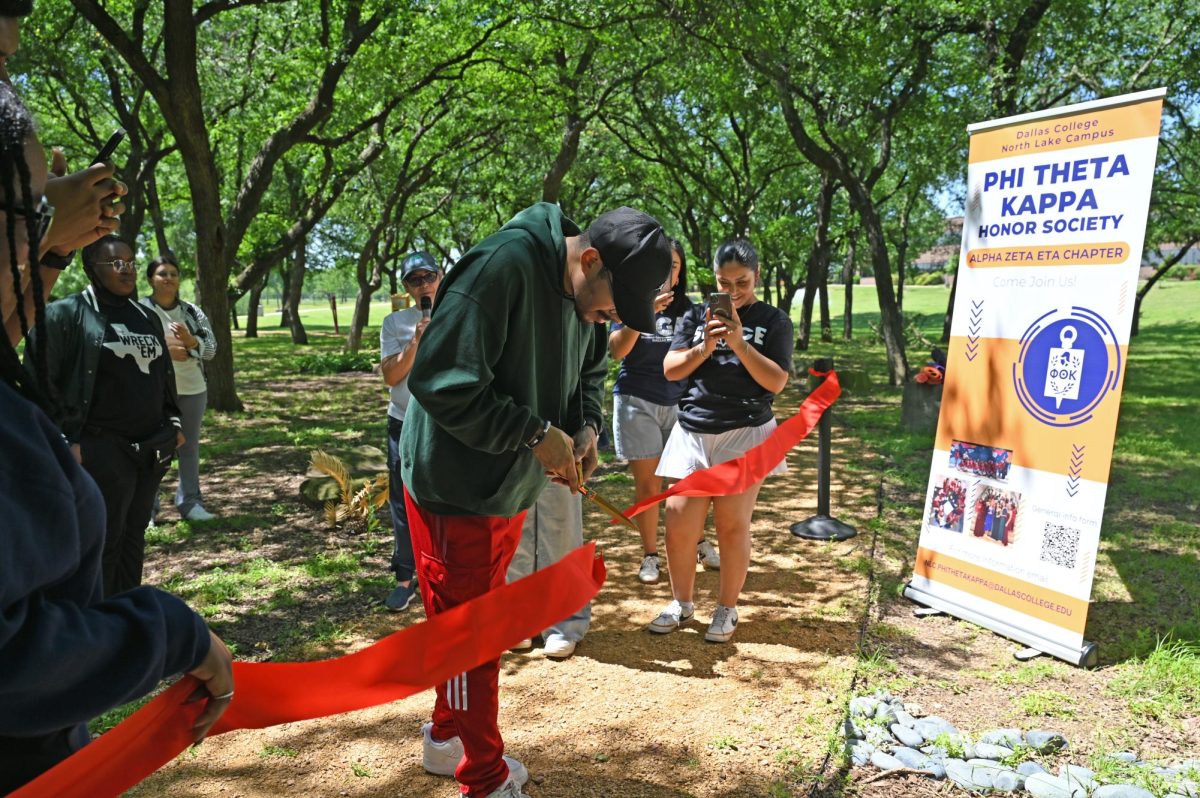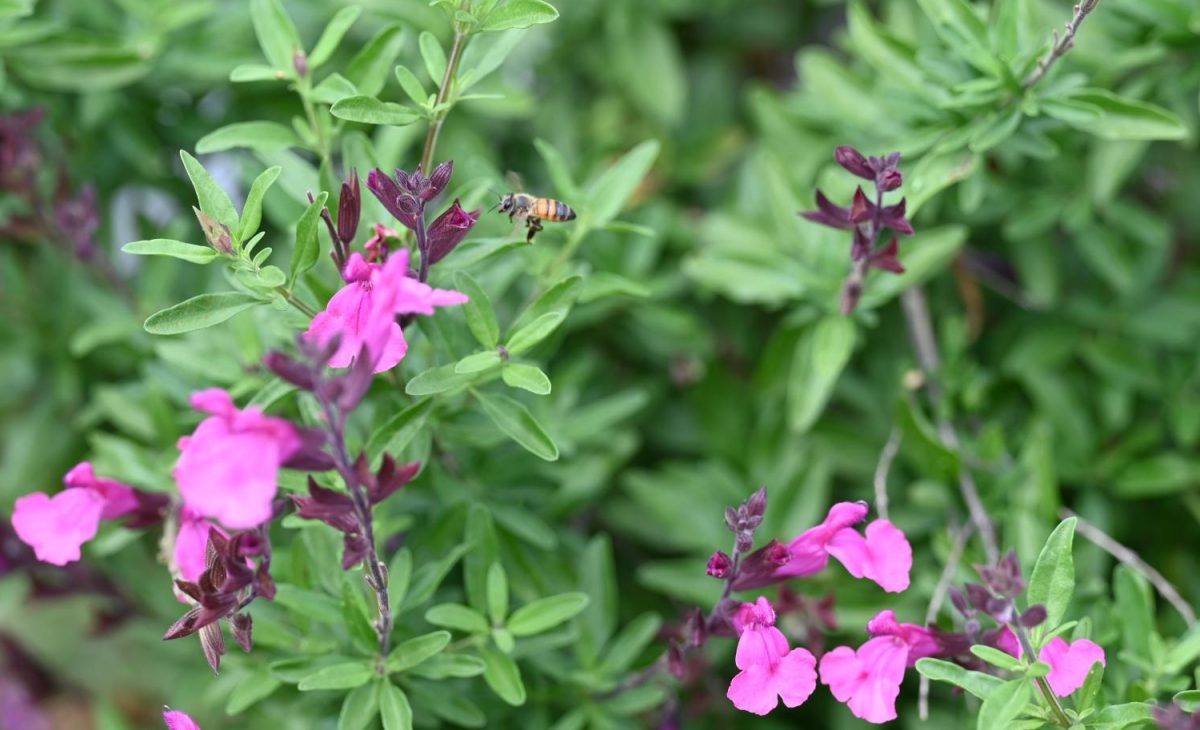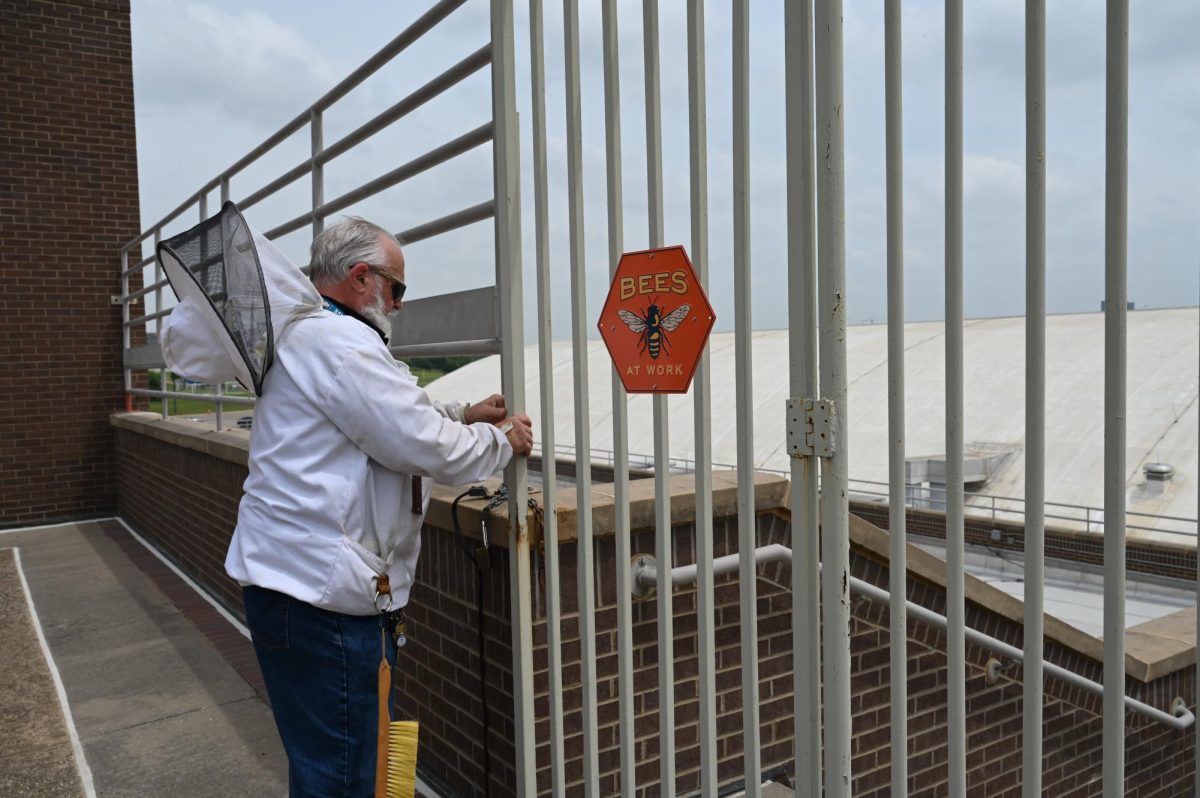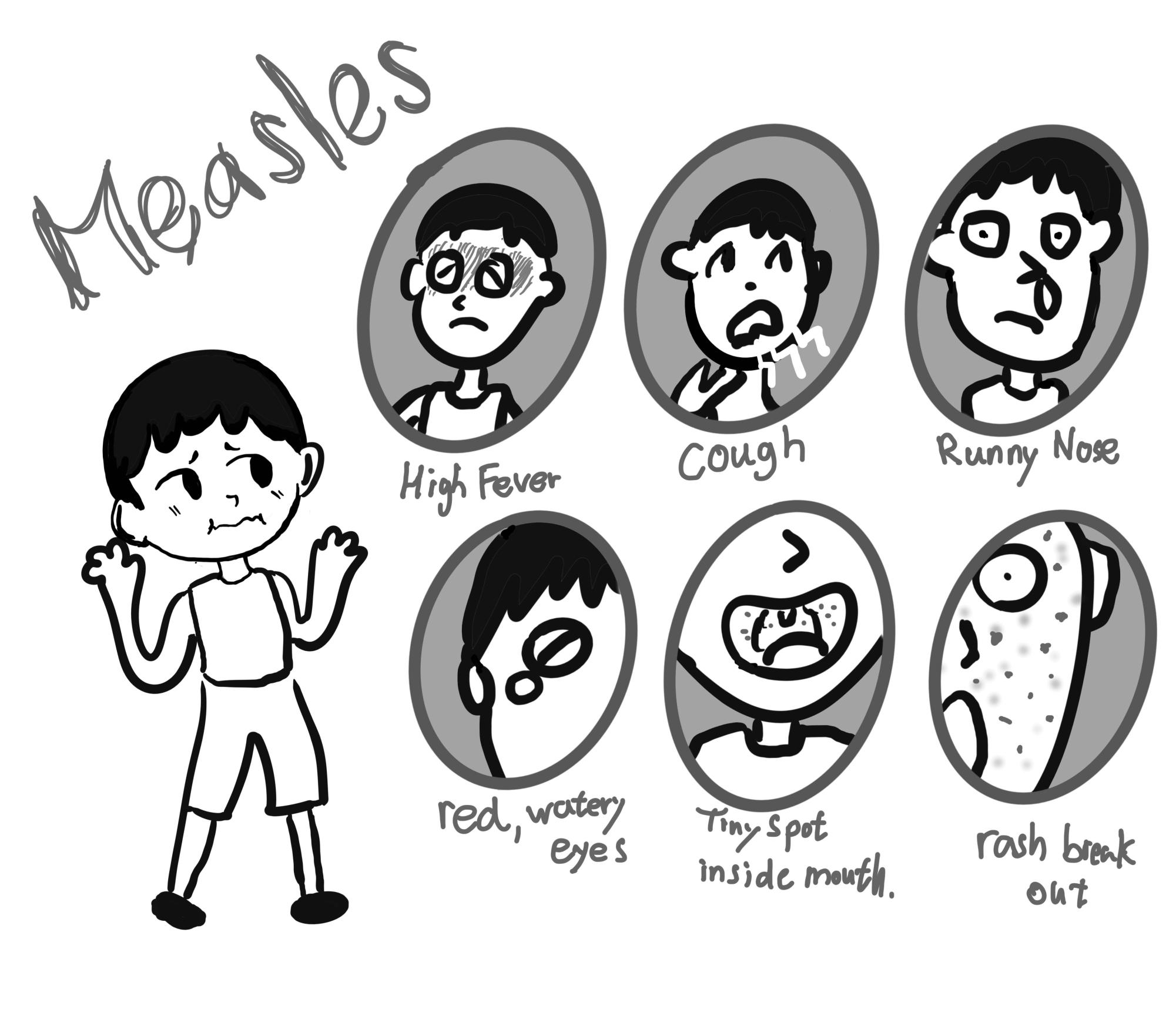The honeybee hive at North Lake Campus was part of the largest eclipse study of insects during a total eclipse ever conducted.
The hive activity was recorded during the celestial event with the help from computer science professor Timothy Gottleber. His beehive, located on the second floor rooftop of F building, was among 200 colonies selected for the The Great American BEEclipse study led by the University of Wisconsin and Vanderbilt University.
“You know how lucky we were to be selected,” Gottleber said. The other bee colonies chosen to participate in the study were also in the path of totality from south of Texas to Main.
Beekeepers used a recording device called BeeDar. It was firmly strapped to the front of the hive’s wooden frame April 4 – 11. It recorded the colony flight and sound every 15 minutes. And on the day of the total eclipse, the device captured the honeybees’ activity every minute.
Gottleber also recorded the worker bees, whom he fondly referred to as “his girls,” with his cell phone on April 8.
From the beginning of the eclipse to totality, Gottleber said he saw no change at the volume of the bees activity. “I expected them to be more responsive to this diminishing light,” he said.
Right before totality, Gottleber saw a significant number of worker bees return to their hive.
“For the last minute or two nobody left,” he said. “So, this is totality at the beehive … there is nobody moving.”
Seconds past totality, he saw a few straggling bees come into the hive and the first honeybee emerged.
Within 10 minutes, the colony got back to their normal activity, flying out of their hive and returning with nectar and pollen of all sorts of colors from white to yellow, orange, red and even black.
On April 12, Gottleber mailed back the BeeDar to the universities in order to investigate and compare the information it had gathered. Now he is waiting for the results which will show up online on the Broodminder website.
“We know that the bees transmit a lot of data with sounds,” Gottleber said.
He first learned about beekeeping at the age of 5 from his grandfather Theodore Vasold who was a keeper of about 20 hives of bees in Freeland, Michigan.
“My grandfather could walk by a hive of bees and tell, ‘Oh something’s wrong’ just by the sound of the hive of bees,” he said. “The sound of the hive is good, that is part of what is wonderful about being around the bees.”
From April 2022 to April 2023, beekeepers in the U.S. lost about 48% of their honeybee colonies.
Gottleber said bees are very important for our ecosystem, without them our whole ecosystem will suffer. Which is why Gottleber helped kickstart the Bee Health Guru App. It records the sound of the bees and informs beekeepers everything that is going wrong and right with their hive. Such as if the colony is queenless or if they have a small hive beetle invasion or a varroa mite, which brings deadly diseases to the hive.
Due to the BEEclipse study, officials from Brookhaven and Cedar Valley told Gottleber they want him to help install hives in their campuses. Gottleber said it’s great news because bees need more genetic diversity for the survival of their species.
“If you want to get bees, get a hold of me,” Gottleber said. “I’ll mentor anybody.”
There are multiple ways people can help contribute to the health and survival of bees. “Don’t mow your dandelions,” he said, explaining that dandelions are the bee’s first food crop in the spring.
“And don’t buy flowers that have been treated with neonicotinoids, “ he said.
He advises people to avoid buying flowers from big box stores unless one can get confirmation the plants have not been treated with neonicotinoids, a new class of pesticide that will make the whole plant toxic and kill a whole hive of bees. “And when I say the whole plant, I mean the nectar and pollen are also toxic,” he said.
Gottleber said the honeybees people see flying around campus are worker bees who are searching for nectar to bring back to their hives. He said his girls don’t want to sting anyone unless they feel like they are in danger, just give them space to do their important work of pollinating plants.
“You can’t see me smile, you can’t hear me smile, but it is just a wonderful thing,” Gottleber said about his beekeeping experience.
View Timothy Gottleber’s personal videos taken of the bees during the eclipse:
















